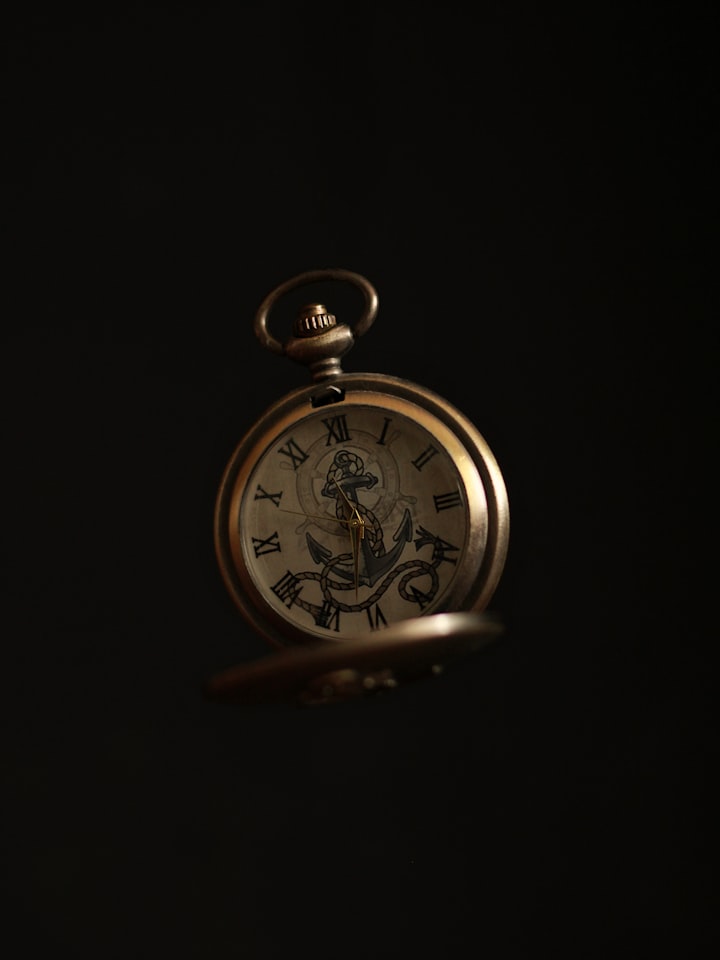
Parikshit, the son of Uttara and Abhimanyu, grandson of Arjun, and great-grandson of the Kuru monarch Pandu, ascended Hastinapur's throne after Draupadi and the Pandavas renounced the material world and left for the Himalayas.
This scion of the Kuru dynasty had inherited Arjun's valor; Yudhisthira's sense of dharma, impartiality, and welfare towards the subjects of his kingdom; and Pandu's love of hunting.
One day, when the sky was clear, he left his palace with a quiver full of arrows, bow hanging on his shoulders, and galloped towards the forest on his finest steed in search of game for hunting.
Parikshit spotted a deer soon after entering the forest. He gently patted his steed to bring him to a quiet stop so as not to startle the deer. Slowly and silently, he pulled out an arrow from the quiver, placed it on the bowstring, pulled it with his mighty arms, and released the arrow.
The arrow startled the deer, who darted for his life. Parikshit pursued the deer, but the deer was nimble and fast and it knew its way in the forest. It ran through small gaps between trees and through bushes, making it difficult for the king to follow. Parikshit, however, did not give up. His adrenaline rising, he tightened his legs around the horse and goaded it to go even faster. Sweating under the hot summer sun, man and horse went in hot pursuit of the deer and followed it deep into the forest. However, the deeper they went, the denser the forest became, and they soon lost sight of the deer.
Parikshit continued the pursuit, following his instincts after losing sight of the deer. He soon passed a small opening where he spotted a man sitting beside a cow. The monarch approached the man and said:
"O noble one, have you seen a deer running from here?"
This man was a sage who had taken strict vows of silence (which prohibited him not only from speaking but also gesturing) that morning. Ignoring the question, he continued to sit still without any word or expression.
Parikshit asked him a few more times, but the man stared blankly at the ground in front of him and refused to even acknowledge the king’s presence. Parikshit, who was already exhausted, thirty, and dejected from having lost the deer, was angered by this man’s impudence. Looking around, he spotted a dead snake. Parikshit picked up the dead snake and put it around the man’s neck — as a garland of insult — and left with thundering footsteps, feeling vexed by this unresponsive stranger.
This man, who Parikshit had insulted, was a great sage called Samika. He had perfect control over his senses, speech, and emotions and was not offended by the king’s insult. He knew that Parikshit was a noble king and ever-mindful of everyone’s welfare in his kingdom. He maintained perfect law and order, which made it possible for sages to engage in meditation and penances without any fear of outlaws. The sage saw through his inner sight that fatigue and despair over having lost the hunt had made the king act in such an unkind manner. Therefore, forgiving Parikshit, the sage continued his meditation with a calm and undisturbed mind.
Meanwhile, near the sage's cottage, a young boy called Sringin was accosted by his friend.
"Sringin, wait, do you know what happened today?"
"What happened?" Sringin asked, looking back.
"You are very proud of your penances and your powers, aren't you? Well, neither your penance nor your power could save your father from being insulted." Sringin's friend taunted him.
"What do you mean? Tell me in detail. Why was my father insulted and who insulted him?" Sringin asked, clenching his fists.
"King Parikshit insulted your father by putting a dead snake around his shoulders."
"Why did he put a dead snake around my father's shoulders?" Sringin inquired.
"The king asked your father a question, but having taken a strict vow of silence, he did not give an answer. The king got enraged and insulted your father."
This young boy, Sringin, being the son of such a great sage, had practiced several penances with his father, which had given him considerable powers. But he had not developed control over his emotions, especially anger. When he heard that the king had insulted his father, his eyes became red, and he screamed in rage:
"How dare he insult my father? How dare he insult a righteous sage? I curse the king. This arrogant king who insults brahmins, who are simply observing their vows, will meet his end soon, and this event will come to pass through the bite of the serpent king, Takshaka, within seven nights."
Sringin's words had such power that they created waves of energy in the cosmos and began a chain of events that would bring Parikshit to the threshold of death within seven nights.
After uttering the curse, Sringin left his friend and rushed to his father's cottage. Seeing his father sitting calmly with a dead snake draped around his shoulder, he said:
"Father, how can you be so calm after being insulted? How dare that king insult you in such a demeaning manner? I have cursed him. He will surely die within seven nights and will return to the afterworld."
The wise sage looked at his son and said:
"Son, you have made a big mistake. King Parikshit is a very noble king. He has worked hard for the welfare of his people. He has brought prosperity to the kingdom and his justice is ever impartial. It is because of the law and order he maintains that we brahmins are able to abide in our vows and do our penances without fear of being disturbed or robbed by outlaws."
"If he is so noble then why did he put a dead snake on you?" Sringin challenged.
"It is because he was very tired, thirsty, and hungry from the chase and dejected that he had lost his hunt. He asked me a question which I wasn't able to answer because of my vow of silence. The king was not aware of my vow and he did it at a time when his sense of discernment was dimmed due to physical exhaustion." The sage explained.
The sage continued, "Son, you have done many penances and have acquired great powers, but you have to learn to control your anger. The heart of a true brahmin must be soft like butter. You will harm others and yourself if you lose control of your temper and misuse your powers."
Young Sringin, not entirely convinced by his father, but respectful towards him, said, "Father, maybe what you say is true, but the curse has been uttered and it will come to pass. I have never spoken a lie in my life and by the power of my penances, the words I have spoken will come true. Nothing can be done now." Thus saying, Sringin left his father's cottage.
The sage, concerned for the king's welfare, contemplated in silence for some time. He knew that Sringin's words had immense power and would certainly bring about events that would cause the king's death. It was unfortunate because the noble king did not deserve to die. Calling his foremost disciple, Gaurmukh, the sage explained what had transpired. Then he said:
"Gaurmukh, go to the king, praise him well, and explain the danger that lies ahead, so he may make proper preparations to protect himself. This is the least we can do for the noble king who has always cared for our welfare. Go now, without any further delay."
Gaurmukh ran to the palace where he was stopped by the palace guards. However, when they heard the reason for his visit, he was immediately granted an audience with the king.
"O best of monarchs. O king of kings. O tiger among men. I have come to give you news of grave importance," Gaurmukh, thus, addressed the king.
"Tell me without fear, O brahmin. What news do you bear?"
"O king, there is a great sage in your kingdom called Samika. He has devoted his life to the almighty and is always engaged in severe penances and strict vows. This morning, when he had taken a vow of strict silence, you asked him a question in the forest, and when he did not answer, you placed a dead snake upon his shoulder."
Parikshit recalled the event and felt great remorse for his rash action. The king looked down at the floor and sighed. After a while he looked up and said:
"O noble brahmin, it is true that I had put a dead snake on a man's shoulders this morning. It was at a time when my mind and body were very exhausted. I did not know it was the great sage Samika, otherwise, I wouldn't have done it. I deeply regret my rash action. Please convey my deepest regret and apology to that noble saint of strict vows."
“O great king, the sage had forgiven you at that moment itself, but his son, who is still young, and of uneven temper, was deeply offended when he saw his father sitting with a dead snake on his shoulder. He cursed you that within seven nights, the serpent king, Takshaks, shall be the cause of your death. My master, sage Samika, asked me to deliver this message to you without delay so you may make preparations for your safety.”
The king thanked Gaurmukh for the timely warning and called his ministers to discuss how to avert the danger. After much deliberation, they decided to build a chamber on a tall, single column of stone. The ground around the chamber would be well protected by the king's most vigilant soldiers.
The chamber was stocked with medicinal herbs before the king took up residence in it. He was also accompanied by brahmins who knew every potent mantra for healing, and the best physicians equipped with knowledge of the healing sciences, from his kingdom.
Meanwhile, Takshaka, the serpent king, was overjoyed when he heard about the curse. The opportunity to unleash his venom on such a powerful king filled him with joy and excitement.
The serpent king was cunning and not prone to rash action. Since he had seven days, he first send his spies to Hastinapur, Parikshit's capital, to survey the place and the king's security arrangements.
After performing an extensive survey, Takshak's men returned to him and said:
"O great king, we have spent the past few days in Hastinapur observing and searching for ways to get to the king, but there are none. King Parikshit has taken up residence in a chamber built atop a tower from one block of stone. The most vigilant soldiers are deployed in circles around the tower for a long distance. Not even the wind can reach the king without being seen."
Takshak dismissed his spies and decided to take it upon himself to hatch a foolproof plot. After much planning, finally, on the seventh day, he addressed his ministers:
"Now hear me carefully. I have thought of a plan to deceive the king's soldiers and reach his chamber on that high column."
Pointing to his ministers, he further said, "All of you will disguise yourselves as brahmins and go towards Parikshit's chamber carrying well-decorated baskets of fruits. When the guards stop you, as they will, use sweet language and tell them that you carry blessed fruits for the king's well-being. They will not allow you to approach the king but give them the fruit baskets and convince them with kind words, blessings, and humility to take the fruits to the king."
All the ministers, barring one, nodded in agreement. That one minister spoke up and said, "But what about you, O king. Will you not come with us?"
“I will come, but not as a brahmin. I will disguise myself as a worm and hide in one of the baskets. Now make haste, for we don’t have much time. Today is the seventh day and the curse will lose its powers after sunset,” Takshaka replied.
The serpent ministers, disguised as brahmins, were stopped by Parikshit's soldiers as they approached the king's special chamber. The brahmins removed the cloth from over the fruit basket, showed the soldiers the well-decorated fruits said, "O brave warriors and protectors of the Kuru race, we are simple brahmins who are very pleased with the great king Parikshit. That tiger among men, that upholder of dharma, that king of kings has always protected the brahmins and we, in turn, have brought him blessed fruits for his long life and well-being."
Parikshit's soldiers looked at each other for some time. Turning back brahmins who had come with blessings might incur their wrath, but the soldiers also had strict orders from the king to not allow anyone to come near his chamber. One of the soldiers finally said:
"O noble brahmins, we follow strict orders from the king. We are not permitted to allow anyone to approach his chamber. We know you come with blessings but we cannot disobey our king."
"O protector of the kuru race, we understand and respect your loyalty to your king. If you cannot allow us to meet him, then pray, take these fruits that bear our blessings."
The serpents who were disguised as brahmins continued saying:
"We are aware that the great monarch is under threat from the huge serpent Takshak's bite. Surely these small and blessed fruits are of no danger to him."
The soldiers seeing no threat from fruits agreed to take them to their king.
Parikshit, who at that time, was seated in his chamber along with ministers, physicians, and priests, was also pleased to receive fruits and blessings from brahmins. He looked at the sun. It had almost set. It was a matter of a few minutes. The sun would set and the curse would be nullified.
“It’s the seventh day, and the sun has almost set. Takshaka is nowhere in sight. Let us partake of the fruits that the brahmins brought for us,” Parikshit said to his ministers.
Parikshit’s ministers and priests looked at the sun and, knowing that it had almost set, sensed no danger, and agreed with the king.
Takshaka, who was disguised as a worm, slid into the basket that was carried to Parikshit.
Parikshit picked up an apple from the basket. When he was about to bite it, he noticed a small worm crawling on the apple. He looked at the tiny worm and roared with laughter.
“Where did you come from, you worm? Surely you are not the great serpent king Takshak. Or are you?” He laughed even louder, mocking the worm.
“So you want to bite me? Is it? Come, I will place you on my neck to make your work easier.”
Parikshit, roaring in fits of laughter, placed the worm on his neck.
Half a minute was left for the sun to set.
Within a few seconds, Takshaka grew in size and became twice the size of Parikshit. The snake king’s wet and slithery skin shone in the setting sun with hues of crimson, purple, yellow, and orange. Taking his most venemous form, he hissed loudly, striking fear in the hearts of everyone who had assembled there, and struck Parikshit on his neck. The startled Parikshit, that great scion of the Kuru race, was instantly reduced to ashes in front of his ministers, physicians, and priests who were unable to do anything to prevent the disaster.

Author’s Notes: I have changed a few minor details and slightly embellished the original story for effect and to make it more interesting to read.
About the Creator
Parag
Finally, I can say that I am a writer - although I'm still figuring out the genres in which I'd like to write!






Comments
There are no comments for this story
Be the first to respond and start the conversation.